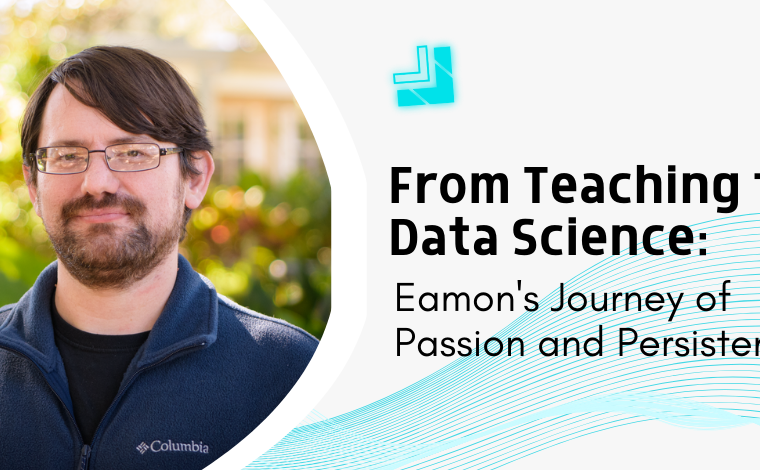How to Become a Data Science Consultant

Stay Informed With Our Weekly Newsletter
Receive crucial updates on the ever-evolving landscape of technology and innovation.
In today’s digital age, data science has emerged as a crucial component for businesses to make data-driven decisions and gain a competitive edge.
As a result, the role of a data science consultant has become increasingly sought after.
Understanding the role of a data science consultant

A data science consultant helps organisations leverage data to drive strategic decision-making and solve complex business problems.
They collaborate with stakeholders, including executives, managers, and data analysts, to identify business objectives and develop data-driven solutions.
As a consultant, your key responsibilities and tasks will include:
- Collecting and analysing large volumes of data.
- Identifying patterns, trends, and insights.
- Developing predictive models and algorithms.
- Communicating findings and recommendations to stakeholders.
- Implementing data-driven solutions and monitoring their performance.
Required skills and knowledge
Data science is a multidimensional role, which includes a strong foundation in the following:
- Mathematics, statistics, and computer science.
- Programming languages such as Python or R.
- Machine learning algorithms and techniques.
- Statistical analysis and hypothesis testing.
- Data visualisation tools, such as Tableau or Power BI.
- Problem-solving and critical-thinking skills.
The importance of education in data science
While formal education is only sometimes a requirement for breaking into the field of data science, it can significantly enhance your knowledge and credibility as a data science consultant.
Relevant degree subjects
Choosing the right degree subjects can provide you with a solid foundation in the skills and knowledge needed for a career in data science.
Subjects such as mathematics, statistics, computer science, and data analytics can provide you with the necessary technical expertise.
A popular and efficient way to enter the data science industry is through accredited programmes, such as the Institute of Data’s Data Science and AI Programme, which can be completed in three or six months.
Postgraduate options and benefits
Postgraduate studies in data science or related fields can provide specialised knowledge and skills to set you apart in the job market.
Programmes such as Master’s degrees or PhDs in data science or machine learning can deepen your understanding of advanced statistical techniques and give you hands-on experience with real-world datasets.
Additionally, postgraduate studies often involve research projects or internships, which can provide valuable practical experience and help you build a strong network within the industry.
Gaining practical experience in data science

While education is essential, practical experience is equally valuable for becoming a successful data science consultant.
Internships and entry-level jobs
Internships or entry-level data science positions can allow you to apply your knowledge in real-world scenarios and gain practical experience.
These positions are in various industries like finance, healthcare, or technology.
During your internship or entry-level job, you will have the chance to work on projects alongside experienced professionals, learning from their expertise and gaining insight into their business challenges.
This practical experience will help you develop a strong foundation in data science and build a portfolio of projects that showcase your skills.
Building a portfolio of data science projects
As a data science consultant, having a portfolio of projects is essential to demonstrate your abilities and showcase your past work to potential clients or employers.
Your portfolio should include various projects highlighting your data collection, cleaning, analysis, and visualisation skills.
It should also demonstrate your ability to develop predictive models and algorithms to solve real-world problems.
Building a portfolio can involve:
- Participating in data science competitions.
- Contributing to open-source projects.
- Working on personal projects that align with your areas of interest.
Additionally, incorporating your portfolio into your online presence, such as a personal website or LinkedIn profile, can help increase your visibility to potential clients or employers.
Acquiring necessary certifications for a data science consultant
In addition to education and practical experience, obtaining relevant certifications can further enhance your credibility as a data science consultant.
Overview of Popular Data Science Certifications
Numerous data science certifications can help you develop specialised skills and demonstrate your expertise in specific areas of data science.
Some popular certifications include:
- IBM Data Science Professional Certificate
- Microsoft Certified: Azure Data Scientist Associate
- Google Cloud Certified – Professional Data Engineer
- The Institute of Data’s Data Science and AI Programme.
These certifications typically involve completing online courses, passing assessments, and sometimes working on real-world projects.
They can provide you with industry-recognised validation of your skills and knowledge.
The value of continuous learning in data science
Data science is a rapidly evolving field, with new techniques, tools, and technologies emerging frequently.
A data science consultant must stay up-to-date with the latest developments.
Continuous learning can involve attending workshops, conferences, or webinars related to data science.
It can also include reading research papers, blogs, or books written by industry experts.
Engaging with online communities and participating in data science forums can provide opportunities to learn from and collaborate with professionals in the field.
Furthermore, online platforms such as Coursera, Udemy, or DataCamp offer various courses and tutorials on data science topics.
These platforms allow you to learn quickly and gain new skills as needed.
Building a professional network in the data science industry

Networking is crucial in any industry, and data science is no exception.
Building a solid professional network can help you discover new opportunities, gain insights from experienced professionals, and collaborate on projects.
Networking events and opportunities
Attending networking events, such as conferences, meetups, or industry-specific gatherings, can provide valuable opportunities to meet and connect with professionals in the data science industry.
During these events, engage in conversations, ask questions, and share your experiences and insights. Be proactive in exchanging contact information and following up with new connections after the event.
Utilising online platforms for networking
Online platforms, such as LinkedIn, Twitter, or data science forums, can also be valuable tools for networking in the data science industry.
Utilise these platforms to connect with professionals in your field, join relevant groups or communities, and actively participate in discussions.
Sharing your knowledge and contributing to society can help you establish credibility and expand your network.
Conclusion
Becoming a successful data science consultant requires education, practical experience, certifications, and networking.
By understanding the role of a data science consultant, acquiring the necessary skills and certifications, gaining valuable experience, and building a professional network, you can pave your way towards a rewarding career in this dynamic and rapidly growing field.
Are you new to data science or considering transitioning?
By choosing the Institute of Data’s Data Science & AI programme, you’ll be equipped with in-depth, practical learning experiences needed to excel in this highly sought-after field of tech.
Want to learn more about our programmes? Contact our local team for a free career consultation today.




